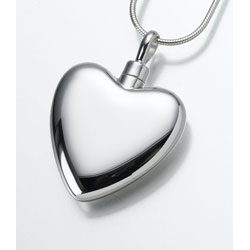Calculating the Actual Cost of a Funeral

When you are making arrangements, the funeral provider must give you an itemized statement of the total cost of the funeral goods and services you have selected. If the funeral provider is unsure of the cost at the time, he or she is required to give you a written “good faith estimate.” This statement also must disclose any legal, cemetery or crematory requirements that you purchase.
Cremation
Many families that opt to have their loved ones cremated rent a casket from the funeral home for the visitation and funeral, eliminating the cost of buying a casket. If you choose a visitation and cremation, ask about the rental option. For those who select a direct cremation without a viewing or other ceremony where the body is present, the funeral provider must offer an inexpensive unfinished wood box or alternative container (usually cardboard or pressboard) that will be cremated with the body.
Under the Funeral Rule, funeral directors who offer direct cremations:
- May not tell you that state or local law requires a casket for direct cremations, because none do!
- Must disclose in writing your right to buy an unfinished wood box or an alternative container available for direct cremations.
Embalming
As far back as the ancient Egyptians, people have used oils, herbs and special body preparations to help preserve the bodies of their dead. Yet, no process or products have been devised to preserve a body in the grave indefinitely. The Funeral Rule prohibits funeral providers from telling you that it does!
Many funeral homes require embalming if you’re planning a viewing or visitation, with the body present. But embalming generally is not necessary or legally required if the body is buried or cremated shortly after death. Eliminating this service can save you hundreds of dollars. Under the Funeral Rule, a funeral provider:
- May not provide embalming services without permission.
- May not falsely state that embalming is required by law.
- Must disclose in writing that embalming is not required by law, except in certain special cases.
- May not charge a fee for unauthorized embalming unless embalming is required by state law.
- Must disclose in writing that you usually have the right to choose a disposition, such as direct cremation or immediate burial, that does not require embalming if you do not want this service.
- Must disclose in writing that some funeral arrangements, such as a funeral with viewing, may make embalming a practical necessity and, if so, a required purchase.
Caskets and Burial
Caskets vary widely in style and price!
Often, the casket is the single most expensive item you’ll buy if you plan a “traditional”, full-service funeral. Caskets are sold primarily for their visual appeal. Typically they’re constructed of metal, wood, fiberboard, fiberglass or plastic. An average casket costs slightly more than $2000, some mahogany, bronze or copper caskets sell for as much as $10,000.
It’s important to remember that the purpose of the casket is to provide a dignified way to move the body before burial or cremation. No casket, regardless of its qualities or cost, will preserve a body forever. Frequently, metal caskets are described as “gasketed,” “protective”, or “sealer” caskets. This simply means that the casket has a rubber gasket or some other feature designed to delay the penetration of water into the casket and prevent rust. The Funeral Rule forbids claims that these features help preserve the remains indefinitely, BECAUSE THEY DON’T and just add to the cost of the casket!
Most metal caskets are made from rolled steel of varying gauges- the lower the gauge, the thicker the steel. Wooden caskets generally are not gasketed and can be hardwoods like mahogany, walnut, cherry or oak. Pine is a less expensive option, but funeral homes rarely display them.
When you visit a funeral home or showroom to shop for a casket the Funeral Rule requires the funeral director to show you a list of caskets the company sells, with descriptions and prices, before showing you the caskets. Industry studies show that the average shopper buys one of the first three models shown, generally the middle priced of the three. It’s in the seller’s best interest to start out and show you higher-end models. If you haven’t seen some of the lower priced models on the price list, ask to see them- just don’t be surprised if they’re not prominently displayed, or not on display at all!
Traditionally, caskets have only been sold by funeral homes. But with increasing frequency, showrooms and websites operated by “third-party” dealers are selling caskets. Chicago land Costco stores have recently started offering caskets at a substantial discount! You can buy a casket from one of these dealers and have it shipped directly to the funeral home. The Funeral Rule requires funeral homes to accept deliveries on third-party caskets sales and doesn’t allow them to charge a handling fee.
Burial Vaults and Grave Liners
Burial vaults or grave liners, also known as burial containers, are commonly used in “traditional”, full-service funerals. The vault or liner is placed in the ground before burial, and the casket or urn is lowered into it at burial. The purpose is to prevent the ground from caving in as the casket deteriorates over time. A grave liner is made of reinforced concrete and will satisfy any cemetery requirement. Grave liners cover only the top and sides of the casket. A burial vault is more substantial and expensive than a grave liner. It surrounds the casket in concrete or another material and may be sold with a warranty of protective strength.
State laws do not require a vault or liner, and funeral providers may not tell you otherwise. However, many cemeteries require some type of outer burial container to prevent the grave from sinking in the future. Neither grave liners or vaults are designed to prevent the eventual decomposition of human remains. It is illegal for funeral providers to claim that a vault will keep water, dirt or other debris from penetrating into the casket if that’s not true.


